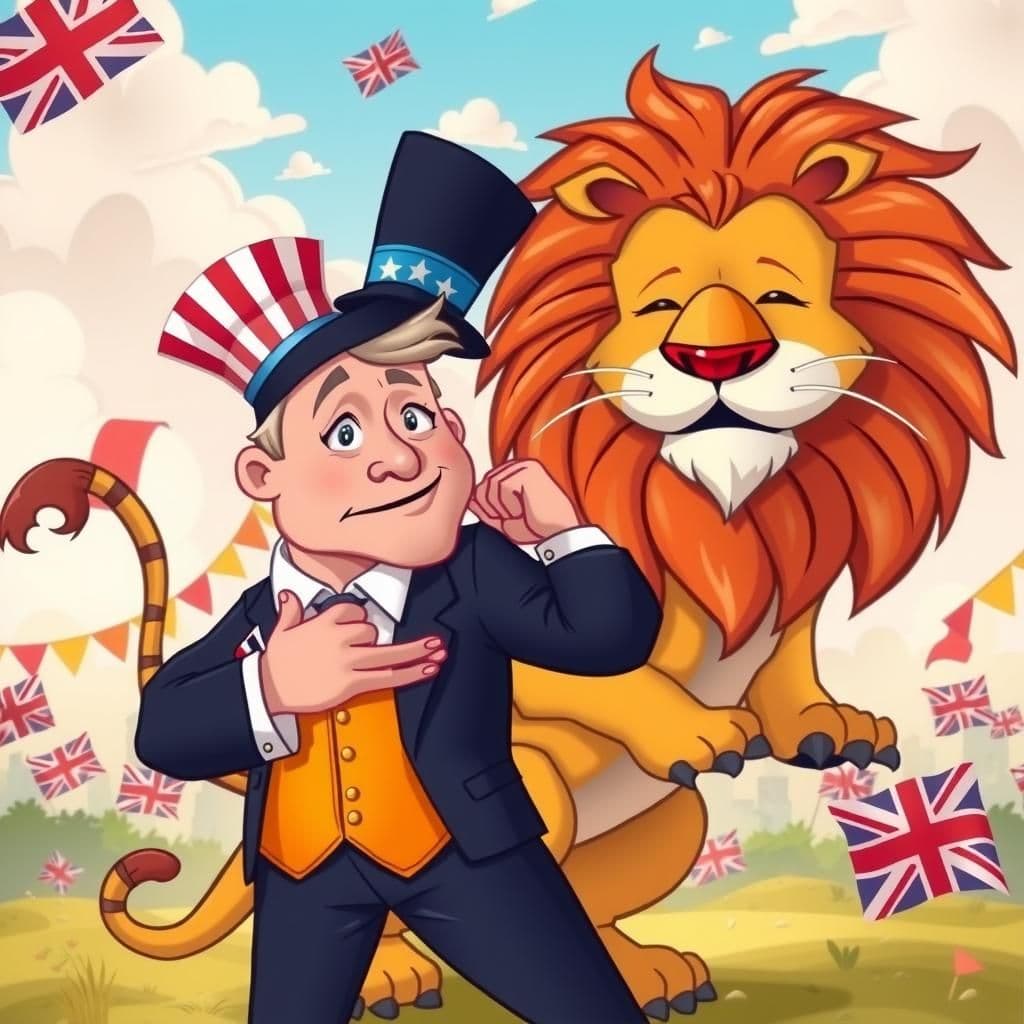A Creaking Tail
In "A Creaking Tail," a determined American Statesman believes he has demonstrated his political power over the British Lion by twisting its tail, only to learn that the sound he heard was merely a sign that the Lion's tail needed oiling. This timeless moral story for students highlights the futility of the Statesman's actions, as the Lion's nonchalant response reveals that true strength is unaffected by superficial efforts. Through this short story, readers are reminded that not all struggles yield the expected results, making it an educational moral story that motivates reflection on the nature of power and influence.

Reveal Moral
"True strength and resilience often lie in the ability to endure discomfort without revealing weakness."
You May Also Like

The Expatriated Boss
In "The Expatriated Boss," a boss in Canada is confronted by a Montreal citizen who accuses him of fleeing to escape prosecution. The boss defends his choice of Canada, citing its corrupt political environment, leading to an emotional reconciliation that highlights the themes of understanding and forgiveness. Through this simple moral story, readers are reminded of the importance of perspective and compassion, making it an educational moral story suitable for kids.

The Olive Tree and the Fig Tree
In "The Olive Tree and the Fig Tree," a classic among famous moral stories, the Olive Tree ridicules the Fig Tree for shedding its leaves with the seasons. However, when heavy snow falls, the Olive's lush branches break under the weight, leading to its demise, while the bare Fig Tree remains unharmed. This popular moral story illustrates that what may seem like a disadvantage can sometimes be a blessing, making it a valuable lesson in short moral tales and bedtime moral stories.

The Lion and the Dolphin
In this creative moral story, a lion and a dolphin form an alliance, believing their dominions over land and sea should unite them as friends. However, when the lion calls for help in a fight with a wild bull, the dolphin's natural limitations prevent him from assisting, leading the lion to accuse him of betrayal. The dolphin explains that his inability to help stems from the constraints of nature, illustrating a valuable moral lesson about understanding and accepting each other's differences in this small moral story.
Quick Facts
- Age Group
- adultkidschildrenstory for class 4story for class 5story for class 6story for class 7story for class 8
- Theme
- political powerresiliencemisunderstanding
- Characters
- American StatesmanBritish Lion
Subscribe to Daily Stories
Get a new moral story in your inbox every day.